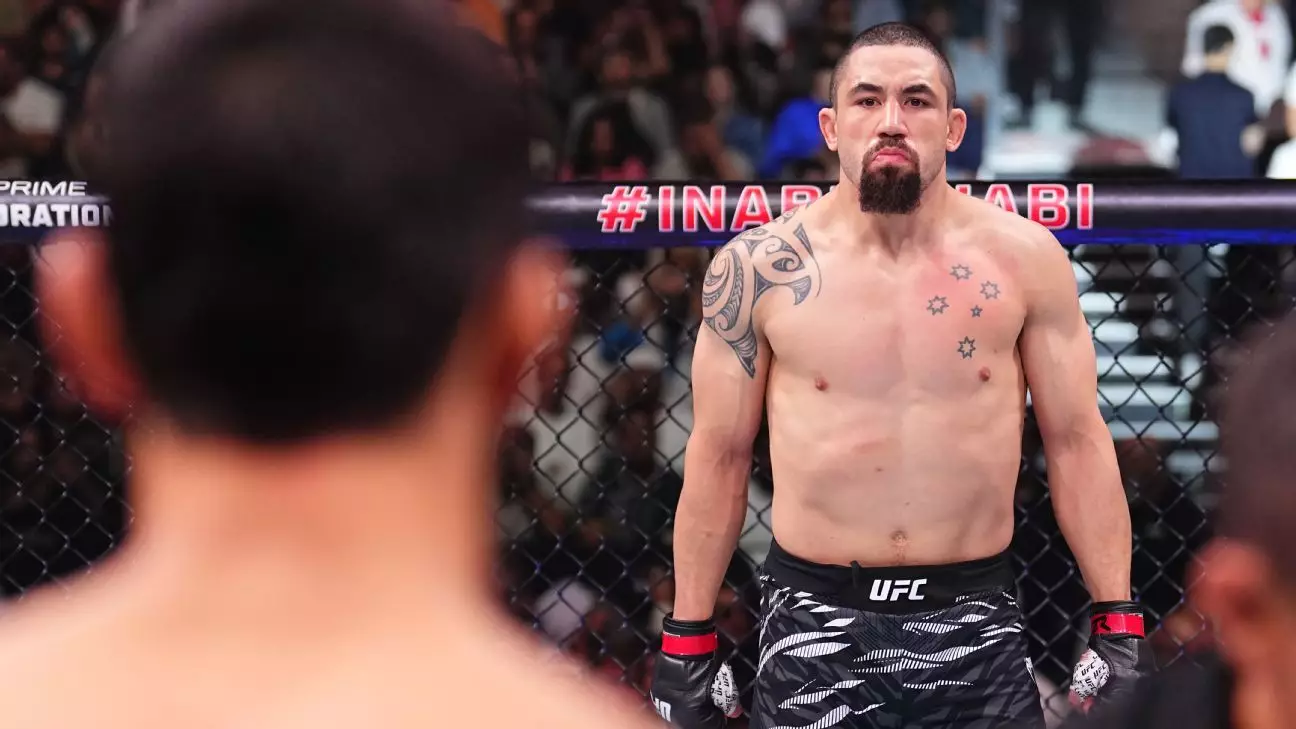The UFC’s decision to kick off its 2025 fight calendar in Abu Dhabi is more than just a scheduling choice; it’s a calculated move that underscores the organization’s relentless pursuit of global influence and the cultivation of a diverse, dedicated fanbase. By placing such a high-profile event in the Middle East, the UFC not only taps into a lucrative market but also signals an intent to elevate the sport’s prestige worldwide. Abu Dhabi’s Etihad Arena becomes a symbolic battleground where East meets West, mashups of style and strategy converge, and new stars emerge amidst the glow of international admiration.
This strategic location amplifies the UFC’s brand as a global phenomenon, aiming to transcend traditional North American roots. The event’s timing and star-studded main card serve as a testament to the UFC’s confidence in traveling fighters and their adaptability. It exemplifies a broader vision: establishing UFC Fight Nights as not merely regional showcases but as pivotal fixtures on the international sports calendar. This move effectively positions Abu Dhabi as a credible, recurring hub for major MMA bouts, opening doors for fighters and fans from all corners of the world to engage with the sport on a deeper level.
The Main Event: A Clash of Experience and Rising Talent
At the heart of this event is a compelling showdown between veteran Robert Whittaker and the enigmatic rising star Reinier de Ridder. Whittaker’s legacy as a former UFC middleweight champion adds a layer of prestige and pressure. Known for his relentless striking, resilience, and strategic acumen, Whittaker epitomizes the seasoned fighter who thrives under adversity. His recent setback against Khamzat Chimaev—an early submission loss—casts a shadow of doubt, but also fuels his motivation to reclaim his standing at the top of the division.
Contrasting this, de Ridder’s ascent adds an intriguing twist. Undefeated in the UFC since debuting last November, the former two-division champion from One Championship is unranked yet brimming with confidence. His grappling prowess and physicality craft a narrative of a fighter with the potential to shake up the division. But does he possess the complete skill set necessary to beat a polished opponent like Whittaker? That question remains unanswered, which is part of what makes this fight so electrifying.
De Ridder’s relentless pressure and reach make him a formidable opponent. However, questions linger around his ability to implement his grappling game against Whittaker’s striking and experience. Will his forward aggression break through Whittaker’s resilience, or will the veteran’s composed striking and tactical footwork frustrate the newcomer? The outcome hinges on whether de Ridder can impose his game plan early or if Whittaker’s nuanced striking and ring IQ will dominate as the fight wears on.
Strategic Analysis: Who Holds the Edge?
Critically analyzing both fighters’ strengths and weaknesses suggests that Whittaker’s higher-level experience, particularly in championship rounds, gives him a strategic advantage. His resilience and adaptability have been tested repeatedly in the heat of five-round battles, whereas de Ridder’s recent fights have yet to push beyond the third round. This clinches the notion that endurance, mental toughness, and tactical pacing favor the veteran.
On the other hand, de Ridder’s grappling is a wild card. His ability to take Whittaker down and dictate grappling exchanges could turn the tide if executed effectively. His physicality, combined with youth and aggression, could threaten Whittaker’s typically measured striking approach. Yet, the consistency of Whittaker’s takedown defense and striking precision might neutralize de Ridder’s ground game, forcing the latter into a striking battle where Whittaker’s experience shines through.
Odds and expert opinions highlight Whittaker’s edge, with many favoring him to secure victory despite the recent setback. However, UFC insiders acknowledge that de Ridder’s size, pressure, and finishability make him a genuine threat, capable of complicating the veteran’s game plan if he can impose his strength early.
What This Fight Represents for the Future of MMA
The significance of this matchup transcends just two fighters; it encapsulates the evolving landscape of MMA. The inclusion of an unranked fighter with an impressive winning streak as a main event underscores the depth of talent lurking beneath the surface of the established hierarchy. It points to a future where fresh faces challenge the old guard, pushing the sport toward greater unpredictability and excitement.
Furthermore, de Ridder’s appearance on this stage highlights the importance of cross-promotional talent acquisition and the globalization of MMA. His success—or lack thereof—could set a precedent for fighters transitioning from other major organizations, ultimately enriching the sport’s competitive fabric. For Whittaker, this fight is an opportunity to demonstrate resilience and redefine his career trajectory, reminding fans why he’s considered one of the best in the world.
In an era where MMA is increasingly about versatility, strategic depth, and mental tenacity, this bout represents a philosophical duel—experience versus youth, refinement versus raw power. Regardless of the outcome, it signals a shift in how fighters prepare, adapt, and seek victory on the international stage, ultimately elevating the entire sport toward a more dynamic and inclusive future.

